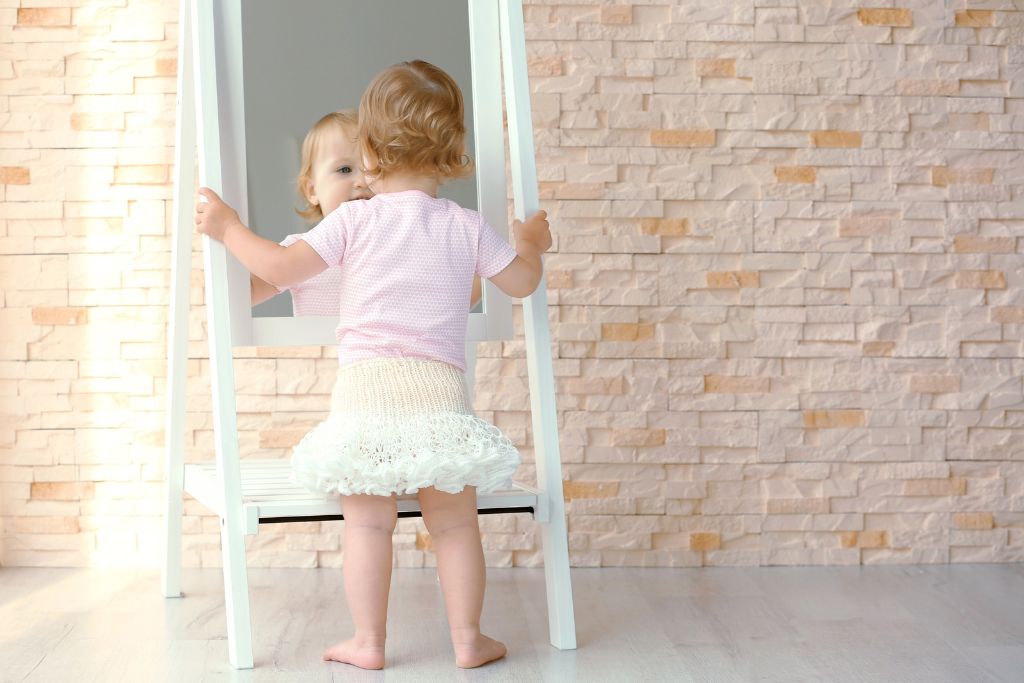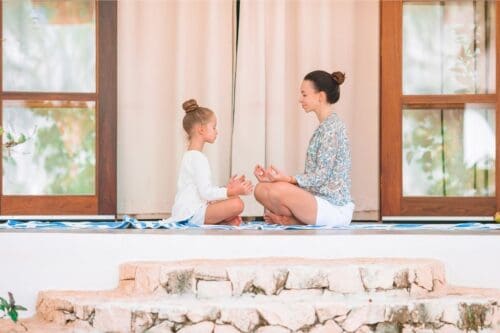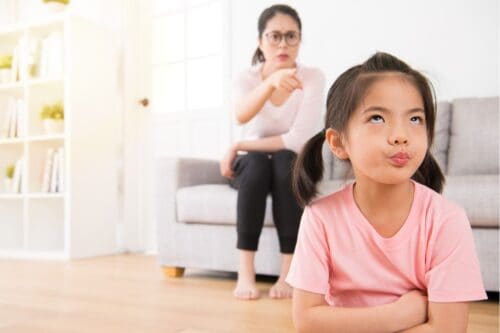Help Kids Build Self-Awareness
Having self-awareness is an important skill that helps us on many different levels. It is the first step in helping us improve our reactions and emotional health.
To simplify self-awareness and make it practical for our kids, I explain it like this:
Self-awareness helps us recognize the sensations in our bodies and how different situations make us feel. It also helps us recognize our thoughts and how they affect us. Additionally, when we are self-aware, we understand how we present ourselves in the world, how our behaviors align with our intentions, and the impact that they are having on those around us.
Table of Contents
I try to teach my kids to be self-aware and I constantly work to improve my own self-awareness. This is a life-long process. And it’s a lot of hard work that requires consistency and self-compassion.
And because it is constant work, it’s easy to lose motivation or focus. It really helps when we get a little positive feedback to show us the fruits of our work.
So today’s story is about just that. A little boost that I got when I saw the results of many years of work in my son.
If you didn’t know this about me, my first language is Romanian and that’s the language that I use with my kids at home.
Although my son is more comfortable speaking in English, he knows that speaking another language is something we value in our family.
Recently, when I picked him up from school, he told me that he found another kid at the school who speaks Romanian. That’s a rare thing around here.
Self-awareness practice 1: Identify sensations and feelings
I asked him how that made him feel.
My son explained that he felt warmth in his body. I asked him if that was pleasant or unpleasant. He said it felt good, it was a pleasant kind of warmth.
Teaching our kids to pay attention to their sensations and feelings and describing them is one aspect of developing self-awareness.
Self-awareness practice 2: Identify thoughts
I asked my son what he thought about that.
He said that he thought it was really cool and rare that he found another kid who speaks our language.
Self-awareness practice 3: Identify actions
Then I asked my son if he did anything after that, if he decided to maybe talk to the kid.
He said he didn’t go up to the kid because he felt shy.
So here we are back to the feelings.
If he had approached the other kid, I could have followed up again with how that made him feel and think, and what he decided after that. It’s a simple circle of questions that we go through.
You can see how I guided my son during our conversation in order to draw his attention to his body, feelings, thoughts, and actions to increase his self-awareness.
Start early
This practice of self-awareness is very important in developing self-regulation. And the sooner we start teaching our kids all these skills, the better they will be able to put them into practice.
Kids can learn self-awareness skills at any age. And if we lay a solid foundation while they’re young, they can reap the benefits when they’re adults. And that’s our ultimate goal, isn’t it?
I’ve been teaching both my kids to recognize, describe, and manage their emotions, thoughts, and actions since they were 3 and 5 respectively. And, while they’re not flawless at managing their emotions, after all, they’re still kids and their brains haven’t finished developing, they amaze me every now and then with their insights and wisdom. And that gives me hope for their future.
Today, I’d like to share with you just a few of the things that I do to help my kids develop self-awareness and self-regulation.
Model
First and foremost, we, the parents, have to practice self-awareness skills. This is for two reasons:
- We can’t teach what we don’t know.
- We model for our kids the behaviors we want them to learn.
Teach Explicitly
Spend enough time teaching kids directly to identify emotions and how they feel in our bodies. As I mentioned above, this part of self-awareness is the first step in managing emotions. We can’t manage what we don’t see. And being able to notice and recognize our sensations and emotions is a necessary step.
Talk About It
Have frequent conversations about feelings with the kids:
- How are they feeling?
- How are other people feeling?
- How would they feel if they were in other people’s situations?
- How are the characters in books and movies feeling?
- How are people’s actions determined by their feelings?
- How do people’s feelings change? etc.
Read
Read books about emotions. We are so lucky to have access to more books supporting emotional literacy! The local library is a great place to start.
Here are some ideas of titles that you can start with:
Children’s Books That teach Mindfulness and Yoga
Books That Teach Children About Feelings
Practice
Have plenty of patience and give it time. Learning a skill takes a lot of practice. And taking into account that our children’s brains continue to develop until their mid-twenties, they will get to practice their self-regulation skills over and over again at increasingly deeper levels over the years. It can be hard as a parent to wait that long, but reminding ourselves to trust this process can be helpful.
All children can learn to become self-aware and regulate their emotions. And it is our job to offer them the resources, guidance, and modeling of these skills. It’s a big undertaking. But I firmly believe it is one of the most important roles that we have in our children’s upbringing.
If you’d like to read more about supporting kids’ emotional health, here is an article in which I describe a few aspects of teaching self-regulation skills: Teach Kids Effective Calm-Down Tools







